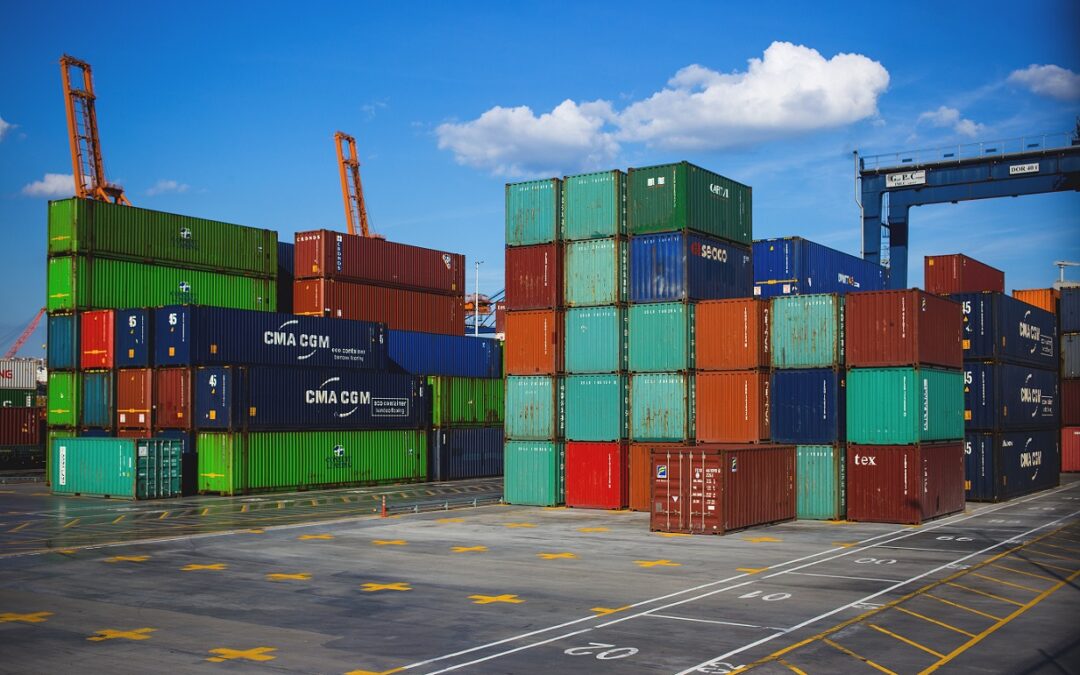Understanding GB customs procedures is crucial for businesses involved in international container shipments. In this guide, we will explore the essentials of export customs clearance for container shipments, focusing on GB customs. Whether you are exporting goods via sea or road, this guide aims to clarify the customs requirements, provide an overview of container types, and highlight the necessary documentation for a successful export customs clearance process.
Container Types
Container shipments can be broadly classified into two categories: LCL (Less than Container Load) and FCL (Full Container Load). Understanding the differences between these types will help you determine the best shipment option.
LCL (Less than Container Load)
LCL shipments involve multiple consignees who share a container to transport their goods. This arrangement is cost-effective for small to medium-sized shipments that do not require entire containers. However, since multiple parties are involved, working with a reliable customs clearance agent who can efficiently consolidate shipments before transportation is crucial.
FCL (Full Container Load)
FCL shipments, on the other hand, are when the entire container is dedicated to a single consignee. This type of shipment offers more control and typically requires fewer customs procedures than LCL shipments. With FCL, you can load the container at your own pace and have greater control over handling and security.
Common Container Types
Understanding the different container types helps you choose the most suitable options. The following are common export container types:
1. Collapsible Flat Rack Containers
Collapsible flat rack containers are ideal for out-of-gauge goods that exceed standard dimensions. They are foldable, allowing for easy storage and transportation when not in use. These containers are often used for shipping heavy machinery, vehicles, or bulky equipment.
2. High Cube Containers
High cube containers have an increased height compared to standard containers. They offer additional capacity, making them beneficial for larger shipments or cargo that requires extra vertical space. High cube containers are particularly useful when shipping lightweight goods that can be stacked to utilise vertical space effectively.
3. ISO Reefer Containers
ISO reefer containers have temperature control capabilities, making them suitable for transporting perishable or temperature-sensitive goods. These containers provide a controlled environment to ensure the cargo remains in optimal condition throughout the journey. They are commonly used for transporting food items, pharmaceuticals, or other temperature-sensitive products.
4. Open Top Containers
Open-top containers have no roof, allowing for easy loading and unloading of taller goods that require cranes or other lifting equipment. This type of container is often used for transporting goods such as machinery, industrial equipment, or large structures that cannot fit within the standard height of a closed container.
5. Standard 20 and 40-foot Containers
Standard 20 and 40-foot containers, also known as dry containers, are the most commonly used for shipping dry goods. They are suitable for goods contained in barrels, boxes, pallets, or sacks. These containers are versatile and widely available, making them an economical choice.
6. Tank Containers
Tank containers are specifically designed for transporting liquids, such as petroleum products or chemicals. They are constructed with reinforced walls and a special interior lining to safely transport hazardous or non-hazardous liquids. Tank containers have valves and fittings for efficient loading and unloading operations.
7. Tunnel Containers
Tunnel containers have doors at both ends, enabling easier loading and unloading. This type of container is beneficial when there is a need for efficient and convenient loading or unloading processes. Tunnel containers are often used when time and accessibility are critical factors.
Export Customs Clearance Documents
The required customs documents for container shipments depend on various factors, including the type of goods being transported and the ports involved. Here are some essential documents for export customs clearance:
1. Goods Movement Reference (GMR)
The Goods Movement Reference (GMR) is a document required for export customs clearance at non-inventory linked ports. It provides crucial information about the shipment, including the consignee, consignor, and details of the goods. The GMR acts as proof of the movement of goods and facilitates the customs clearance process.
2. Commercial Invoice
The commercial invoice provides detailed descriptions of the goods being shipped. It includes information such as the value of the goods, quantity, unit price, and total value of the shipment. The commercial invoice is evidence of the transaction between the buyer and the seller and is required for customs valuation during export customs clearance.
3. Packing List
A packing list provides a comprehensive breakdown of the contents of each package within the container. It includes information such as the weight, dimensions, and number of items in each package. The packing list helps customs officials verify the accuracy of the shipment and assists in the identification and handling of goods during customs inspections.
4. Bill of Lading (B/L)
The bill of lading is a legal document issued by the carrier or shipping line. It acknowledges the receipt of goods, specifies the terms of transportation, and serves as evidence of the contract between the shipper and the carrier. The bill of lading contains essential information such as the consignor, consignee, description of goods, and shipping instructions.
Export Customs Declaration
An export customs declaration is a document that provides detailed information about the goods being exported. It includes the Harmonised System (HS) code, which classifies the goods for export customs clearance. Customs declaration assesses the applicable duties, taxes, and regulatory requirements associated with the goods.
Choosing the Right Customs Agent for Export Customs Clearance
Partnering with a reliable customs agent is essential to navigate export customs procedures. Here are a few reasons why selecting the right customs agent is crucial for a smooth export customs clearance process:
1. Expertise and Knowledge
Customs agents have in-depth knowledge of customs regulations and procedures. They understand the complexities of international trade and can provide valuable guidance on customs compliance, tariff classification, and documentation requirements for streamlined export customs clearance.
2. Customs Clearance Efficiency
A reputable customs agent streamlines the export customs clearance process, ensuring goods are cleared in a timely manner. They have established relationships with customs authorities and possess the necessary tools and resources to expedite the clearance processes.
3. Risk Mitigation
Customs agents are well-versed in risk management strategies. They can help identify potential issues or discrepancies in documentation, reducing the risk of delays, penalties, or customs audits. Their expertise ensures shipments comply with relevant regulations and requirements.
4. Cost Optimisation
Working with an experienced customs agent minimises costs associated with customs duties, taxes, and fees. They can advise on duty-saving opportunities, preferential trade agreements, and customs valuation methods. This helps to minimise your financial obligations while remaining compliant with customs regulations for an efficient export customs clearance process.
Understanding container shipment export customs clearance procedures is crucial for successful international trade. You can ensure a seamless and efficient process by familiarising yourself with different container types, necessary customs documents, and the importance of selecting a reputable customs agent.
How Can We Help You At Customs Clearance Experts?
At Customs Clearance Experts, we have experienced custom agents who provide specific guidance tailored to your unique shipping requirements. Our knowledge and support make navigating GB customs for container shipments easy. Contact us today for a successful and hassle-free trade experience.

